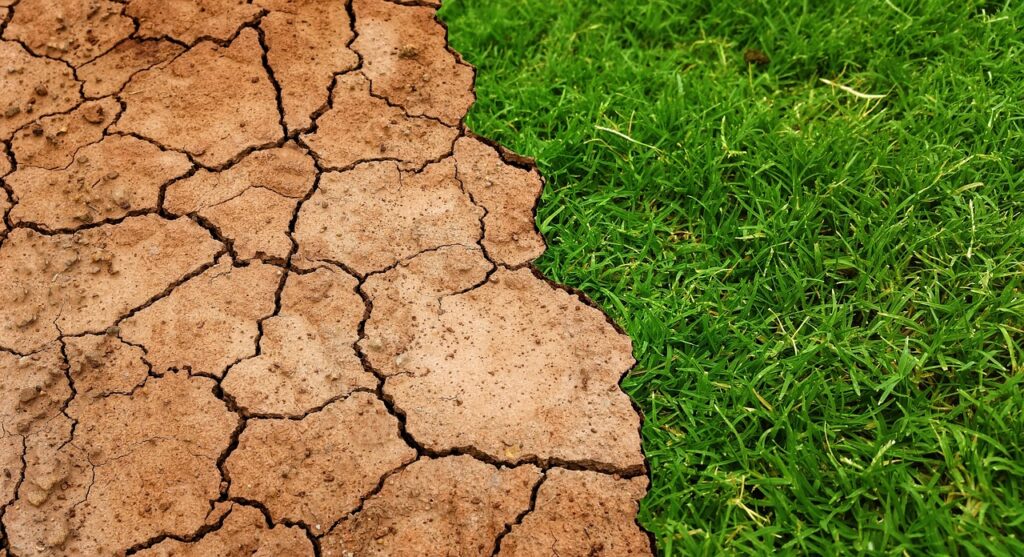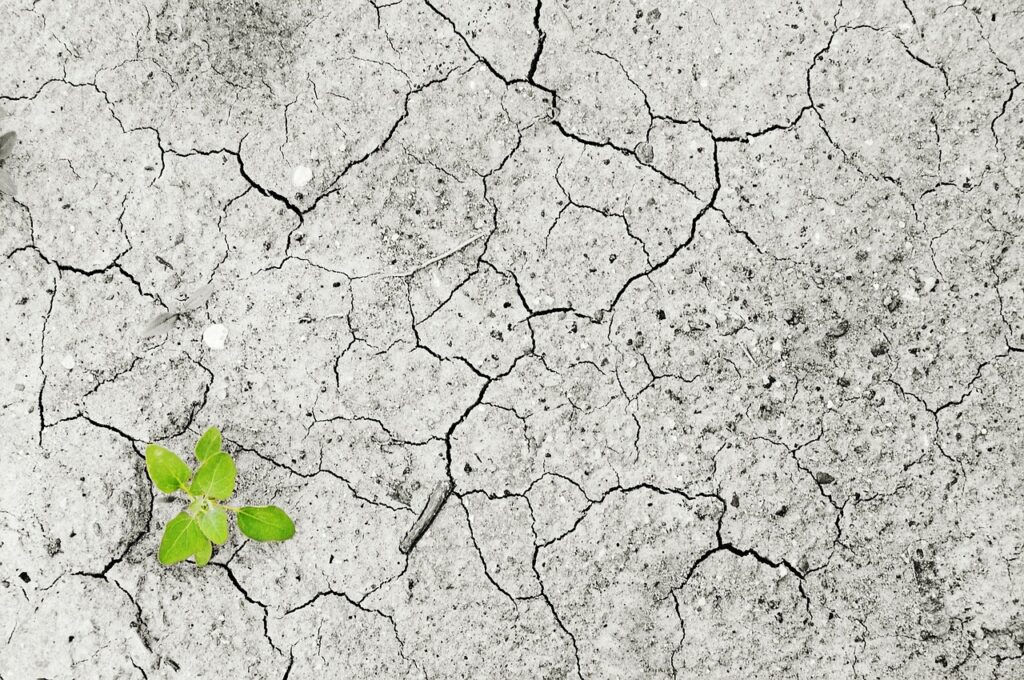The agriculture is a significant and one of the most important economic sectors in Macedonia. Some statistics show that agriculture contributes approximately 16 percent to the total GDP of the country, but the real share is possibly even higher, because these data are only a part of the value of the agricultural production of the small who sell their products themselves.

However, not many people in Macedonia talk about the relation between the climate change and agriculture. In fact, this is the most important but also the most marginalized sector in terms of climate change, which are one of the biggest threads the humanity is currently facing. This relation is a two-way process. On the one hand, there is a negative impact of the unstable climate on agricultural production, which mostly takes place outside, in open air and is fully exposed to all the effects resulting from global warming. On the other hand, agriculture participates in causing climate change with significant emissions of greenhouse gases primarily through the cultivation of certain crops, fertilizing and dealing with pests, use of pesticides, release of methane and nitrogen oxides, which are one of the most powerful greenhouse gases. Because of this, we can conclude that the agriculture sector is one of the most exposed to the negative impacts of climate change, but it also affects it as well.
The sensitivity of the agricultural sector to climate change has important consequences for Macedonia. When the livelihood of a significant part of the rural population depends on agriculture (the most recent national census recorded 192,675 family farms in a country of 2 million inhabitants), rural communities are particularly vulnerable to the risks caused by the changes that can occur as a result of climate change. The vulnerability of the agriculture comes because the production is in the open, under the direct influence of different climatic phenomena, like the appearance of late frosts, hail, torrential rains, heat waves, etc.
Furthermore, the future will likely bring even hotter summers and unfortunately unexpected storms, with hails becoming more frequent occurrences.
Тhe IPCC’s best predictions say that if nothing is done to bring fossil fuel emissions under control, the average temperature will rise by between 2.4 and 6.4 degrees Celsius by the end of the century. As a country which is known as one of the sunniest regions in Europe, Macedonia averages about 260 to 280 sunny days annually and the Macedonians know how to enjoy them, but for the agriculture it can have very negative effects. Higher temperatures can absolutely make damages on every plant. They can affect earlier flowering of plants and can adversely affect the development of a large number of physiological and biochemical processes. They can also increase the risk of late spring frosts which can damage and sometimes even fully destroy the plants. Uneven and heavy rainfall during summers affects the quality of everything that is produced.
As one of the key sectors of the Macedonian economy and a critical employer in rural areas, agriculture has big importance for social security and poverty reduction. The majority of the rural population depends directly or indirectly on agriculture. The employment in agriculture in Macedonia is at a high level compared to other jobs, accounting for some 22 percent of the total employment. Reduced agricultural output caused by climate changes can lead to economic hardships for farmers and rural communities, increase in food prices and reduction in the country’s agricultural exports. The farmers do not receive enough financial support to cope with the negative impacts of climate change. According to William Sutton, chief economist for agriculture at the World Bank – „The rural poor will be disproportionately affected because of their greater dependence on agriculture, their relatively lower ability to adapt and the high share of income they spend on food“.
There are opinions that unless adaptive measures are applied, yields from all agricultural crops will decrease. Although there are large differences in the projections, there is still a general agreement that after 2050 the impacts on a large number of annual and perennial crops in most of the country will be negative.
Macedonia has a great potential for agricultural development, but climate changes can affect the quantity and quality of the food that we will have, which is a priority of every country including Macedonia in the future. The increasing concentrations of greenhouse gases will contribute to climate change that is expected to decrease global crop yields compared with a no climate change scenario. While climate changes can promote faster growth in some plants, they can also make some plants less nutritious. Barley, millet, flax, corn, cherries and apples may have increased levels of toxins due to the lack of water and bad weather conditions. We should pay attention to what we eat and how it was produced. Many of the plants we eat contain toxins, but because we eat them in limited amounts, we do not notice any changes in our health. In addition, plants try to protect themselves in times of climate change and the way they do it can be harmful to humans. They use nitrates to grow which they then convert into other molecules such as amino acids and proteins. Genetically modified seeds are often offered as a solution, as they should be able to survive significantly harsher climates and produce quality fruit, but the safety of GMO products has not yet been fully proven and in some countries their production and distribution are still prohibited.

Regardless of the advances and technological innovations introduced in agricultural production, the weather is still the most significant factor in food production. Macedonia, as a country with a small area and without access to sea, must have preservation and natural resources as its top priority. So, it is very important to put the dealing with climate change in the center of attention not only of the public, but also of all relevant institutions that enact decisions. Each of us should know what will be the costs of neglecting this danger to the agriculture. I think that the awareness about this problem in Macedonia is very low. The farmers themselves and institutions are still unable to cope with climate changes on the ground. Moreover, it seems like there is no political interest in an effective fight against climate change; according to the budget for 2023, only 0,7% of expenditures are planned for nature protection. And, from my point of view, it is same with the people, their interest is at a very low level so it is the final hour to take action. To conclude, here are some small things that we can all do as individuals: increase the activity of planting plants and afforestation, reducing in the consumption of products in plastic packaging, installing solar panels on our houses and buildings for electricity production, rationally use drinking water, sorting waste and recycling.